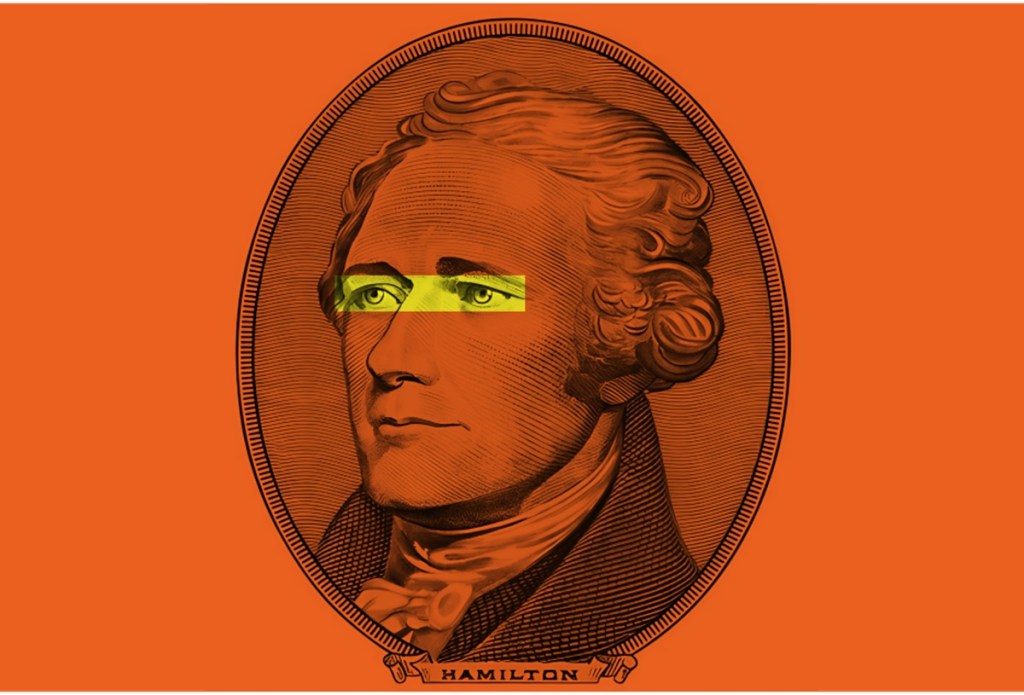Hamilton, a protocol specializing in tokenizing real-world assets (RWA) on Bitcoin, has raised a $1.7 million pre-seed funding round.
It’s probably no accident it’s being announced on the day of Donald Trump’s inauguration in the U.S., where there’s a shift happening from an anti-crypto administration to one that is expected to be more sympathetic.
Hamilton, whose imagery includes laser eyes coming out of Andrew Hamilton’s face, is bringing traditional finance to Bitcoin, making tokenized real-world assets, such as fixed income, funds, and real estate, accessible to institutions and individuals worldwide.
Led by DisrupTech Ventures, the deal included participation from investors CMS, DeSpread, Hyperithm, Core Ventures, and other strategic investors.
The protocol was cofounded by Mohamed Elkasstawi and Ehab Zaghloul, who together bring over a decade of experience building blockchain-integrated fintech platforms for emerging markets. Hamilton leverages Bitcoin’s unmatched security and decentralization to tokenize real-world assets. With the RWA market projected to reach $30 trillion by 2030, Hamilton is building a protocol to make financial products more accessible and inclusive globally, starting with emerging markets.
“Bitcoin isn’t just digital gold. It’s the foundational layer for the future of global finance,” said Elkasstawi, CEO of Hamilton, in a statement. “By building on the most trusted ledger with 99.99% uptime over nearly 15 years, we’re bridging traditional finance with Bitcoin, democratizing access to capital markets for everyone, anywhere.”
Hamilton’s solutions address systemic barriers to financial access by offering low-cost, stable financial products in emerging markets, where currency devaluation and economic instability often limit opportunities for growth and financial security.
Hamilton is launching three flagship offerings: HUSD, the first native stablecoin on Bitcoin backed by U.S. Treasury bills; HUST, tokenized U.S. Treasuries; and Publius, a platform empowering financial institutions to tokenize any asset on Bitcoin, ensuring secure placement on the world’s most decentralized network. These offerings provide institutions and individuals with seamless access to capital markets.
The company said the protocol’s inaugural transaction, completed on July 4, 2024, marked a significant milestone by tokenizing U.S. Treasury bills on Bitcoin Layer 2 solutions Stacks, Core, and BoB. The timing, coinciding with America’s Independence Day, reflects Hamilton’s vision of advancing financial independence and innovation through decentralized finance (DeFi).

“Investments in gold, Treasury bills, and fixed income products have traditionally been exclusive to individuals and institutions with millions in capital. Hamilton is breaking down these barriers through tokenization, enabling anyone, anywhere in the world, to participate in these institutional-grade investments with just one dollar,” said Malek Sultan, cofounder and partner of DisrupTech Ventures, in a statement.
Focused on emerging markets across Latin America, Africa, and Southeast Asia, Hamilton bridges traditional finance with blockchain innovation, offering institutional-grade investment opportunities through its flagship products.
Kasstawi holds a B.S. in engineering management, while Zaghloul holds a Ph.D. in computer engineering from Michigan State University specializing in blockchain security and cryptography.
Legal Disclaimer: This company said their press release is for informational purposes only and does not constitute an offer to sell or a solicitation of an offer to buy any securities.
Source link


